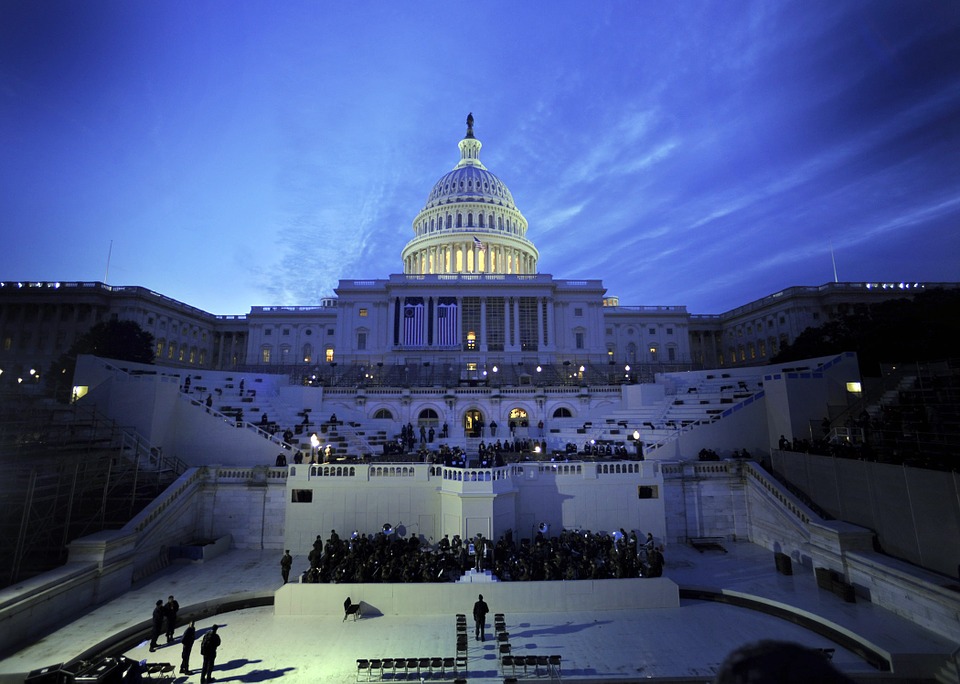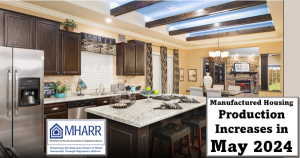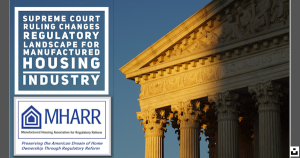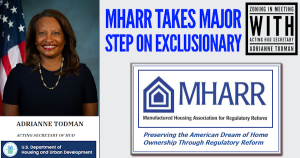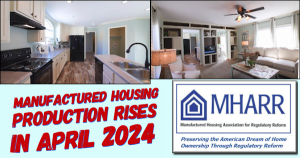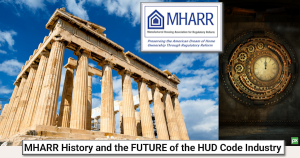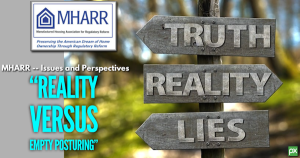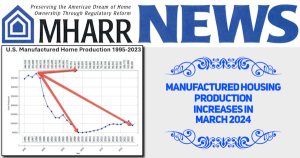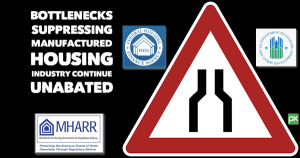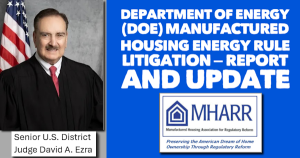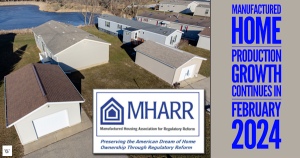[vc_row][vc_column][vc_column_text]
The study recommends urgent action to address the establishment of an effective, new, national, collective representation of the PPS, because of the increasing and intensifying targeting of that sector by federal manufactured housing regulators and entrenched program contractors, which, having reached a veritable saturation point in the regulation of the HUD Code industry’s production sector, are now seeking a new and expanded role (and corresponding new earnings opportunities) in the regulation (and over-regulation) of the PPS.
This “must-read” study, demonstrates how the post-production sector, under its current representation model, is being short-changed and is falling well short of its full potential – with corresponding negative consequences for the broader HUD Code industry as well as consumers – in crucial areas including, but not limited to: placement, zoning, and, even more importantly, the needlessly restricted availability of competitive, lower-interest-rate consumer financing for the 80% of the manufactured home purchase-financing market represented by chattel (i.e., personal property) loans. The cumulative impact of these factors has been to severely restrain the growth (and growth potential) of the industry as a whole, needlessly and severely limiting the availability of HUD Code manufactured homes for millions of otherwise financially-qualified Americans, while, at the same time, excluding high-quality manufactured homes from wide swaths of the most densely-populated areas of the nation.
This failure has also allowed HUD – particularly during the last four years under its current career administrator — to tamper with and significantly erode the federal-state regulatory partnership mandated by federal law, which serves as the fundamental basis for the reasonable, cost-effective regulation of the industry that, by law, is required to advance both the availability and affordability of HUD Code manufactured housing. Indeed, the last four years have seen a steady stream of baseless federal impositions on the states by HUD, accompanied by a continual erosion of state regulatory authority, state independence and the funding necessary to act and function as the key component of the HUD regulatory program that Congress intended – and provided – for them to be.
In Washington, D.C., MHARR President and CEO, Mark Weiss, stated: “MHARR’s study on the representation of the industry’s post-production sector, highlights the need for the independent, collective, national representation of that crucial sector, in order to provide it, at long last, with the aggressive representation that it deserves, and to ensure that its unique interests are fully protected, defended and advanced, without being needlessly tethered to other interests – particularly industry mega-conglomerates — which may not share the same perspectives or goals. While the study shows that MHARR itself is not the correct place for that representation, the Association will not only continue to provide accurate and factual information to the post-production sector as it has for many years, but will also provide its full assistance to any such new organization, after its formation and incorporation, in connection with relevant regulatory, legislative, and, if need be, legal matters.”
The Manufactured Housing Association for Regulatory Reform is a Washington, D.C.-based national trade association representing the views and interests of independent producers of federally-regulated manufactured housing.


